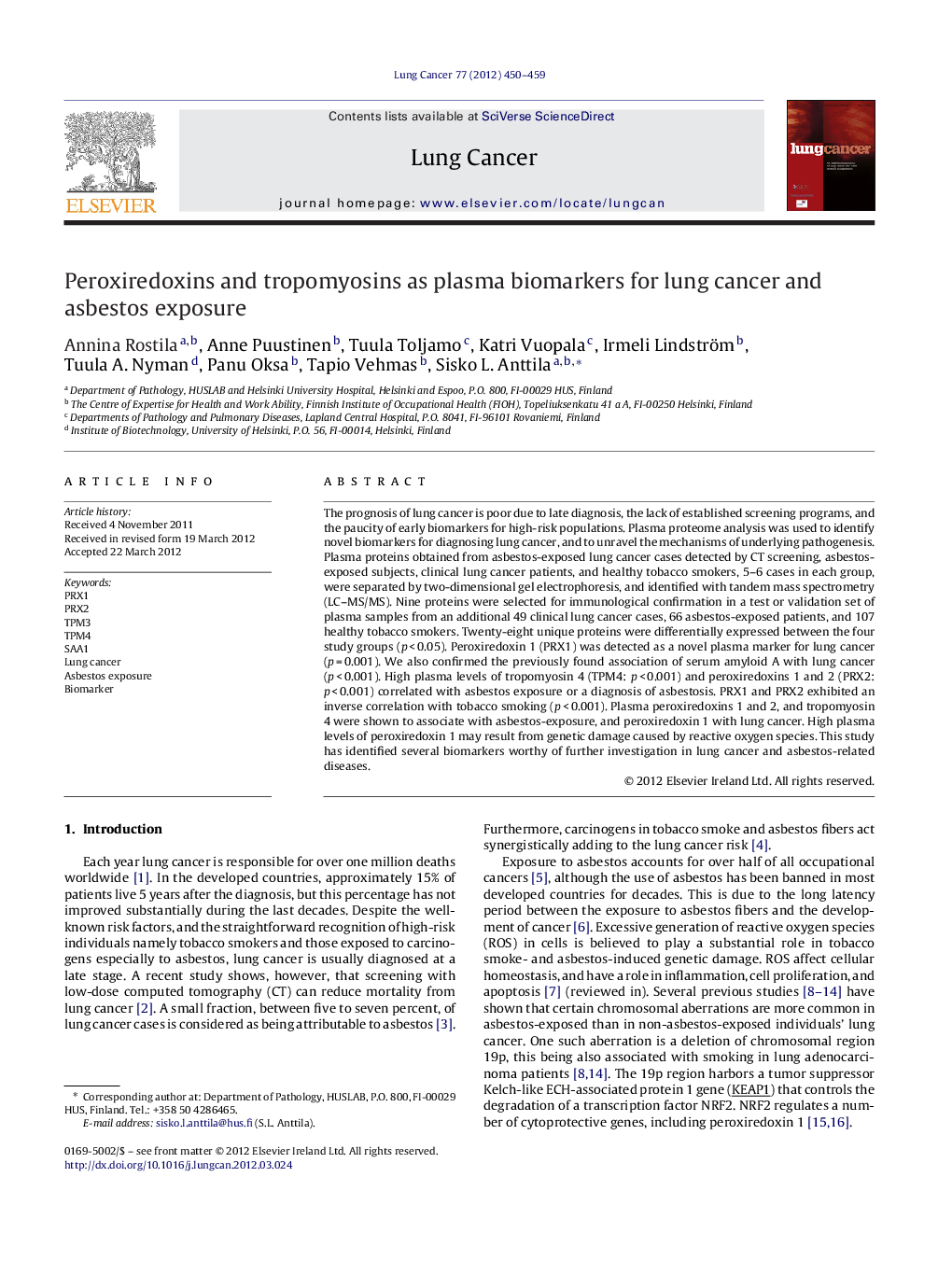| Article ID | Journal | Published Year | Pages | File Type |
|---|---|---|---|---|
| 2142107 | Lung Cancer | 2012 | 10 Pages |
The prognosis of lung cancer is poor due to late diagnosis, the lack of established screening programs, and the paucity of early biomarkers for high-risk populations. Plasma proteome analysis was used to identify novel biomarkers for diagnosing lung cancer, and to unravel the mechanisms of underlying pathogenesis. Plasma proteins obtained from asbestos-exposed lung cancer cases detected by CT screening, asbestos-exposed subjects, clinical lung cancer patients, and healthy tobacco smokers, 5–6 cases in each group, were separated by two-dimensional gel electrophoresis, and identified with tandem mass spectrometry (LC–MS/MS). Nine proteins were selected for immunological confirmation in a test or validation set of plasma samples from an additional 49 clinical lung cancer cases, 66 asbestos-exposed patients, and 107 healthy tobacco smokers. Twenty-eight unique proteins were differentially expressed between the four study groups (p < 0.05). Peroxiredoxin 1 (PRX1) was detected as a novel plasma marker for lung cancer (p = 0.001). We also confirmed the previously found association of serum amyloid A with lung cancer (p < 0.001). High plasma levels of tropomyosin 4 (TPM4: p < 0.001) and peroxiredoxins 1 and 2 (PRX2: p < 0.001) correlated with asbestos exposure or a diagnosis of asbestosis. PRX1 and PRX2 exhibited an inverse correlation with tobacco smoking (p < 0.001). Plasma peroxiredoxins 1 and 2, and tropomyosin 4 were shown to associate with asbestos-exposure, and peroxiredoxin 1 with lung cancer. High plasma levels of peroxiredoxin 1 may result from genetic damage caused by reactive oxygen species. This study has identified several biomarkers worthy of further investigation in lung cancer and asbestos-related diseases.
